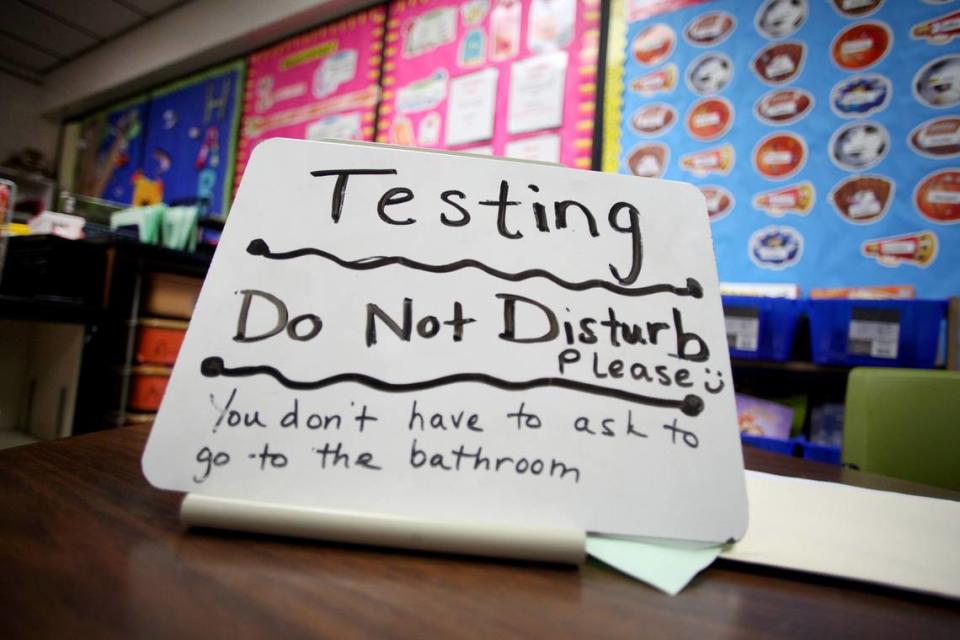COVID disrupted NC education in the past year. Should the state still grade schools?

North Carolina education leaders want to exempt public schools from being graded on their academic performance this year.
The state annually issues every public school an A through F letter grade that is largely based on passing rates on standardized tests. But the State Board of Education voted last week to request state lawmakers to waive the requirement to issue the school performance grades this year.
State education officials say it’s important to give the exams to assess how individual students are doing. But officials say it’s not fair to grade the schools because the coronavirus pandemic will likely cause more students than normal to skip the exams.
The waiver request only applies to the grades given to schools, not the grades given to individual students.
The General Assembly granted the waiver last year. But it’s uncertain if the waiver will be granted this year, especially as Republican lawmakers have been vocal in complaining that public schools have been slow in fully reopening for in-person instruction.
A spokeswoman from Senate leader Phil Berger’s office said they were waiting for more information on the waiver request. Berger has been one of the state legislature’s most outspoken advocates of the school letter grades.
Exams required this year
Both the state and federal governments require annual standardized tests to assess school and student performance.
Elementary and middle schools give end-of-grade exams in reading, math and science. High schools give end-of-course exams in various subjects, including math, biology and English.
Some groups have urged suspending standardized tests this year like they were last year.
But the U.S. Department of Education announced that it would not give testing waivers this school year. Federal officials say that the tests are needed so that both schools and parents can see how students are doing.
Scores expected to be down this year
If the state waiver isn’t approved, the school grades could be much lower than normal. The majority of high school students failed state exams in the fall semester, and school districts have estimated that 23% of their students are at risk of academic failure and not being promoted at the end of the school year.
This year’s exams will come during a period when students have had no, or only limited, in-person instruction since March 2020 due to COVID-19.
“We all know the context of this school year,” Tammy Howard, director of accountability services for the state Department of Public Instruction, told the state board last week. “As a parent, my takeaway would be that perhaps like everything else in our lives, we’re seeing some outcomes from our learning opportunity.”
School letter grades questioned
For elementary and middle schools, the passing rates on state exams make up 80% of their letter grade. The remaining 20% is based on whether students are showing academic growth on the tests.
Passing rates on exams also make up a large percentage of the letter grade for high schools.
The letter grades were adopted by state lawmakers who say it provides an easy way for families to tell how schools are performing.
But critics say the grades are unfair and are largely a reflection of a school’s demographics.
In the 2018-19 school year, the last year where the grades were issued, a News & Observer analysis showed that 86.5% of the schools where less than 20% of students are low income received an “A” or “B” grade. But 60% of the schools where 80% or more of the students are low income received a “D” or “F” grade.
“These grades mean nothing,” State Superintendent Catherine Truitt said Wednesday as the state board reviewed the grades of charter schools up for renewal. “I could look at the A and also say, ‘What does that mean?’ That’s just my shameless plug for revising our school accountability system.”

 Yahoo Finance
Yahoo Finance 